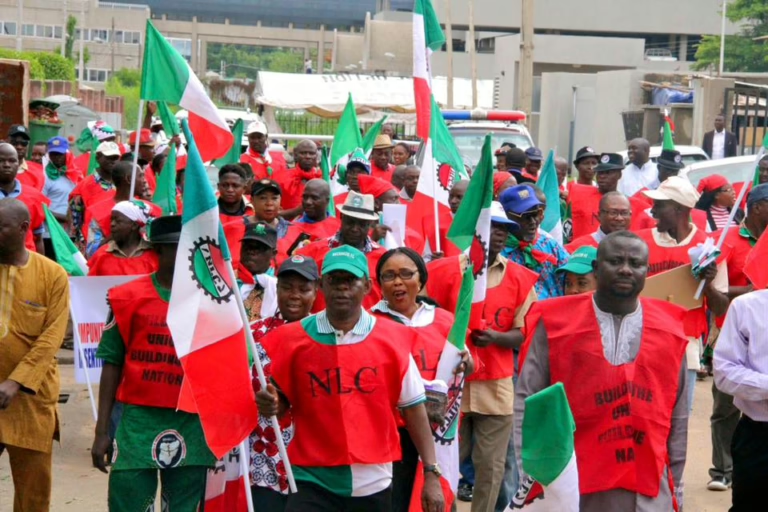On Monday, the Nigeria Labour Congress (NLC) issued a strict four-week deadline to the federal government, demanding the swift conclusion of all ongoing negotiations with unions representing workers in the tertiary education sector. Failure to meet this deadline will trigger a nationwide strike involving all affiliated unions.
Comrade Joe Ajaero, President of the NLC, revealed that the congress is committed to collaborating closely with these unions to ensure the enforcement of existing agreements, while advocating for consistent funding and equitable compensation across Nigeria’s universities, polytechnics, and colleges of education.
This ultimatum emerged after thorough discussions with representatives of university and polytechnic staff unions. The NLC firmly rejected the government’s previous ‘No Work, No Pay’ policy applied against the Academic Staff Union of Universities (ASUU), instead adopting a ‘No Pay, No Work’ position to emphasize the workers’ rights in the ongoing dispute.
Speaking to the press in Abuja, Ajaero criticized government officials who attend negotiation meetings without the authority to finalize agreements, stating that such actions have only prolonged the crisis. He stressed that future talks must yield concrete results rather than empty assurances.
The NLC’s announcement comes amid escalating tensions in the education sector, as ASUU and other academic unions continue their strike over the government’s failure to honor previous commitments. Key issues include unpaid salary arrears, withheld allowances, and inadequate funding for infrastructure development.
Recently, non-academic unions such as the Non-Academic Staff Union (NASU) and the Senior Staff Association of Nigerian Universities (SSANU) have also threatened industrial action, accusing the government of neglecting signed memoranda of understanding (MoUs). Similarly, polytechnic and college of education staff have voiced concerns over insufficient funding and delays in implementing revised salary structures.
The mounting dissatisfaction has pushed the education sector to a critical point, prompting urgent calls for intervention to prevent further disruptions.
In response, the NLC announced the establishment of a unified framework to oversee the enforcement of all pending agreements and to spearhead a nationwide campaign advocating for comprehensive education reform.
Ajaero highlighted the congress’s commitment to promoting UNESCO’s guideline that countries allocate at least 25 to 26 percent of their annual budgets to education, underscoring the need for increased investment in the sector.
He warned that if the government fails to meet the four-week deadline, the NLC will mobilize workers across the country to initiate a complete shutdown, describing this as a necessary step to break the cycle of unfulfilled promises and recurrent strikes.
“We have resolved to give the federal government a four-week window to finalize all negotiations within this sector. Should this not be achieved, the NLC’s governing bodies will convene to organize a nationwide strike involving all unions and workers,” Ajaero declared.
“From now on, no union representing tertiary institution workers or others will engage in meetings with government officials who lack the authority to make binding decisions. The era of signing agreements without follow-through and intimidating unions is over.”
“The previous ‘No Work, No Pay’ policy will be replaced by ‘No Pay, No Work.’ It is unjust to provoke strikes by reneging on agreements and then penalize the workers affected. That chapter has closed,” the NLC chairman concluded.






















